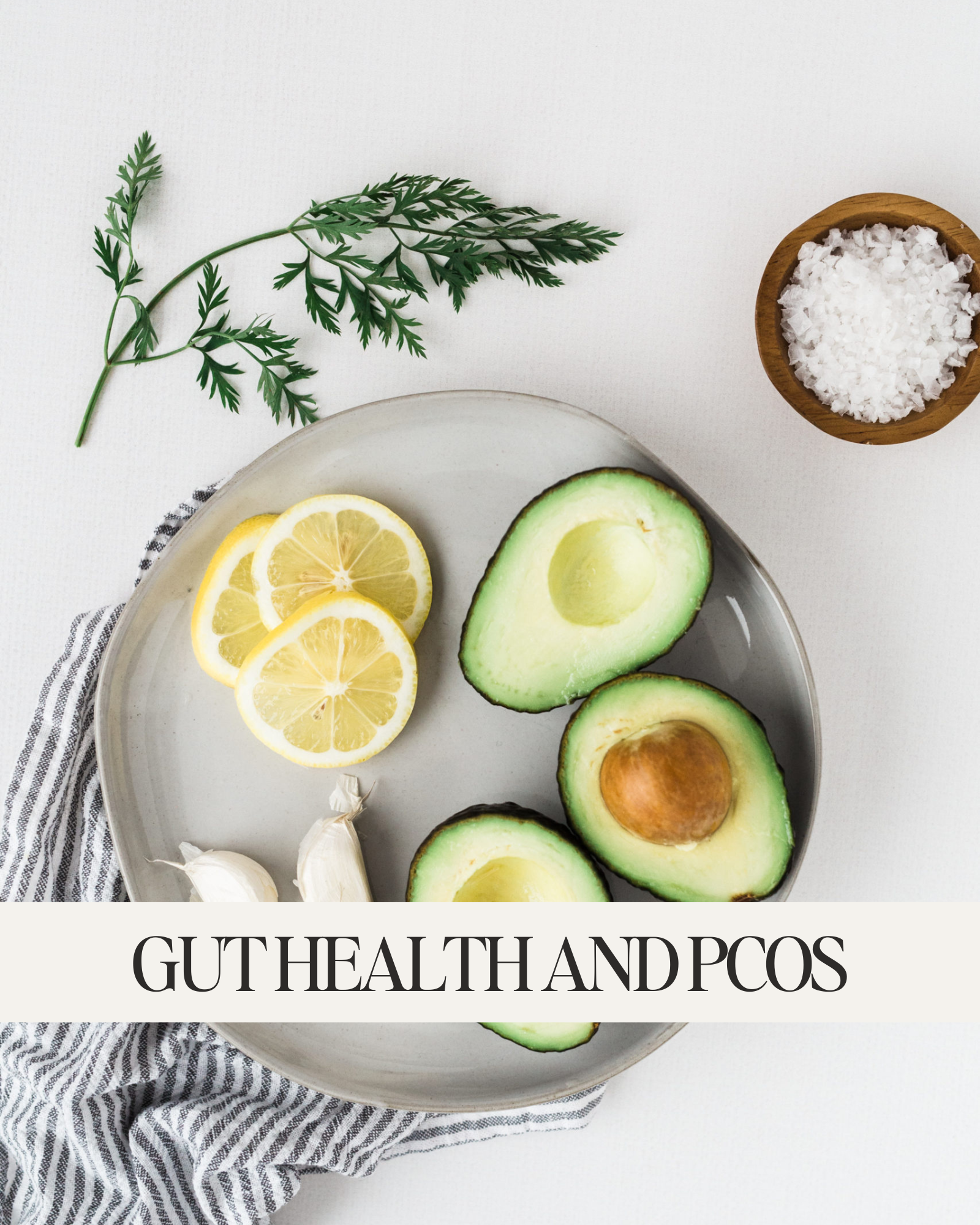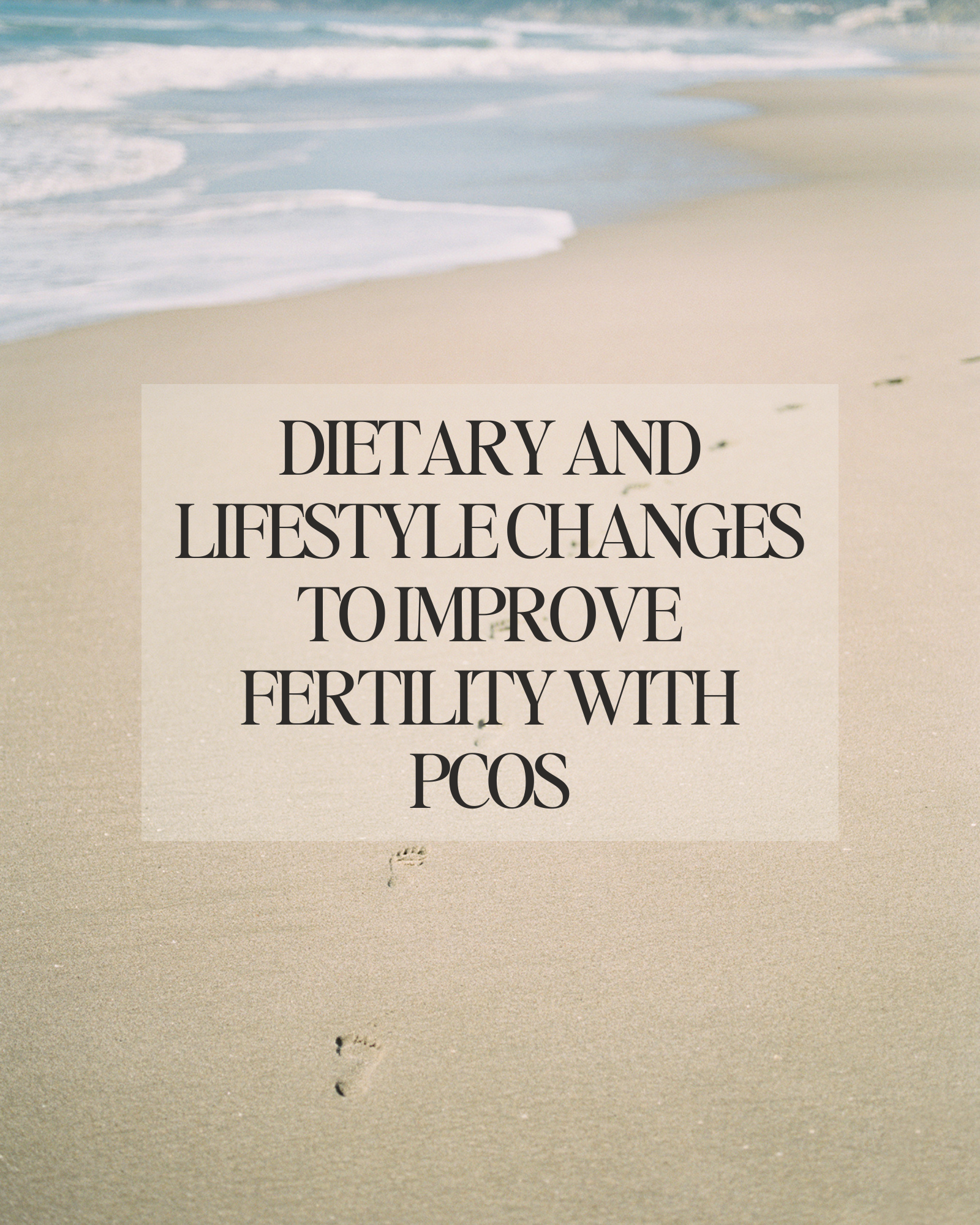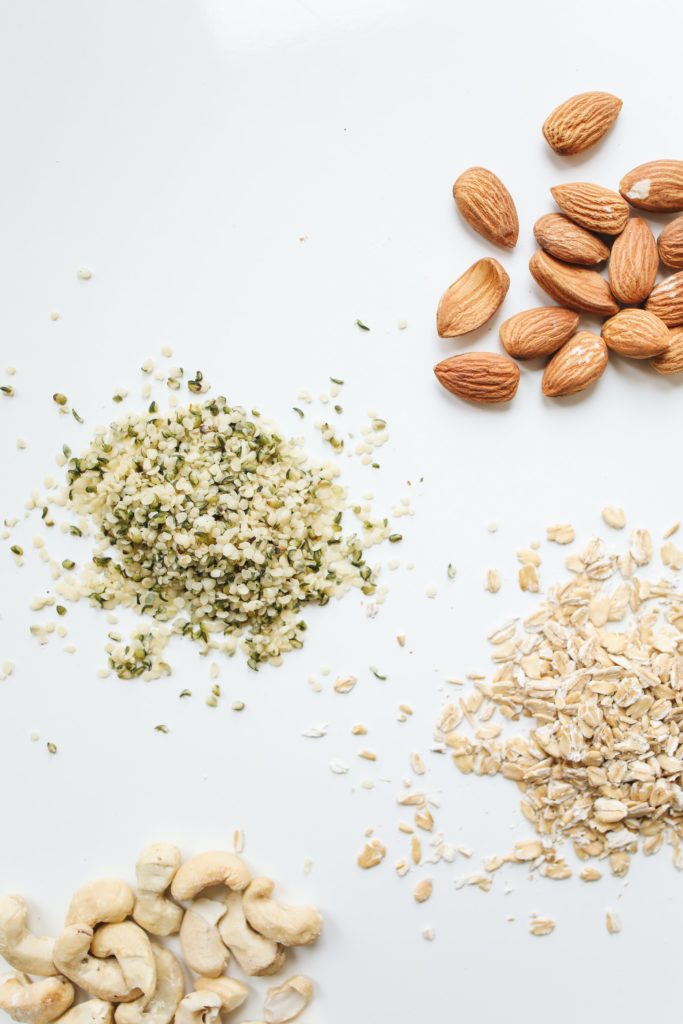Resources
Style
Planning
View All
THE blog
If you’ve been diagnosed with Polycystic Ovary Syndrome (PCOS), you’ve probably been told that birth control is the go-to solution. While it can help regulate cycles and manage symptoms, it’s not a one-size-fits-all fix—and it certainly doesn’t address the root causes of PCOS. The good news? There are plenty of science-backed, natural strategies to help you take control of your health, balance your hormones, and feel your best. From nutrition and exercise to stress management and supplements, this article explores effective alternatives to birth control for managing PCOS.
Understanding PCOS and Its Symptoms
PCOS is a complex endocrine disorder characterized by hyperandrogenism, ovulatory dysfunction, and polycystic ovarian morphology. It is associated with disruptions in the hypothalamic-pituitary-ovarian (HPO) axis, leading to irregular menstrual cycles and anovulation. Elevated levels of luteinizing hormone (LH) relative to follicle-stimulating hormone (FSH) contribute to excessive ovarian androgen production, resulting in clinical manifestations such as hirsutism, acne, and alopecia.
Insulin resistance is a central feature of PCOS, affecting up to 70% of individuals with the condition. Hyperinsulinemia exacerbates ovarian androgen secretion and inhibits hepatic production of sex hormone-binding globulin (SHBG), further increasing circulating free androgens. This metabolic dysfunction predisposes individuals to weight gain, dyslipidemia, and an increased risk of type 2 diabetes and cardiovascular disease.
Additionally, PCOS is associated with chronic low-grade inflammation, as evidenced by elevated levels of inflammatory markers such as C-reactive protein (CRP) and interleukin-6 (IL-6). These inflammatory pathways may contribute to the pathophysiology of insulin resistance and ovarian dysfunction. Given the heterogeneity of PCOS phenotypes, a personalized and multifaceted approach that addresses both endocrine and metabolic abnormalities is essential for effective symptom management.
1. Nutrition for PCOS Management
Diet plays a crucial role in managing PCOS symptoms. The right food choices can help regulate blood sugar levels, reduce inflammation, and balance hormones.
Prioritize Whole, Nutrient-Dense Foods
A diet rich in whole, unprocessed foods can significantly improve PCOS symptoms. Key dietary guidelines include:
- Low Glycemic Index (GI) Carbohydrates: Foods like whole grains, legumes, and non-starchy vegetables help regulate blood sugar levels.
- Healthy Fats: Incorporating sources such as avocados, nuts, seeds, and olive oil can improve insulin sensitivity and support hormone production.
- Lean Proteins: Chicken, fish, tofu, and legumes can help maintain stable blood sugar and support muscle mass.
Reduce Inflammatory Foods
Chronic inflammation is a common feature of PCOS. To minimize inflammation, avoid:
- Processed foods high in seed oils and refined sugars
- Excessive dairy and gluten (which may exacerbate inflammation in some individuals)
- Artificial additives and preservatives
Support Gut Health
The gut microbiome plays a significant role in hormone regulation. Probiotic-rich foods such as yogurt, kefir, kimchi, and sauerkraut can improve gut health and support metabolic balance.
2. Exercise and Movement
Regular physical activity is one of the most effective ways to improve insulin sensitivity, regulate menstrual cycles, and manage weight with PCOS.
Strength Training
Resistance training, including weight lifting and bodyweight exercises, can enhance insulin sensitivity, support lean muscle mass, and improve metabolic health.
Cardio Workouts
Moderate-intensity cardio exercises like brisk walking, cycling, or swimming can improve cardiovascular health and help with weight management.
Mindful Movement
Yoga and Pilates can help lower cortisol (stress hormone) levels and improve hormone balance, making them beneficial for managing PCOS symptoms.
3. Brown Fat and PCOS
Recent research has highlighted the potential role of brown adipose tissue (BAT), commonly known as brown fat, in managing Polycystic Ovary Syndrome (PCOS). Unlike white fat, which stores energy, brown fat burns calories to generate heat, thereby enhancing metabolism. This thermogenic property of brown fat can improve insulin sensitivity and metabolic health, which are often compromised in women with PCOS.
Strategies to Activate Brown Fat:
- Cold Exposure: Regular exposure to cold temperatures can stimulate brown fat activity. Practices such as cold showers or spending time in cooler environments may enhance BAT function.
- High-Intensity Interval Training (HIIT): Engaging in HIIT exercises has been associated with increased brown fat activation, contributing to improved metabolic outcomes.
- Dietary Choices: Consuming foods rich in healthy fats, particularly omega-3 fatty acids found in fish oil and flaxseeds, may support brown fat activity and overall metabolic health.
Incorporating these strategies into a holistic lifestyle approach may offer additional benefits for managing PCOS symptoms, complementing other interventions such as nutrition, exercise, stress management, and supplementation.
4. Stress Management and Sleep
Chronic stress and poor sleep can worsen PCOS symptoms by elevating cortisol levels and disrupting hormonal balance.
Stress-Reduction Techniques
- Meditation and Deep Breathing: Practicing mindfulness and controlled breathing can help reduce stress hormones.
- Journaling and Therapy: Expressing emotions and seeking professional support can help manage stress and anxiety related to PCOS.
- Spending Time in Nature: Outdoor activities and exposure to sunlight can help regulate circadian rhythms and improve mood.
Prioritizing Quality Sleep
- Maintain a Consistent Sleep Schedule: Going to bed and waking up at the same time each day supports hormonal balance.
- Limit Screen Time Before Bed: Blue light exposure from screens can disrupt melatonin production, affecting sleep quality.
- Create a Restful Sleep Environment: Keep your bedroom cool, dark, and free from distractions to promote deep sleep.
5. Natural Supplements for PCOS
Several supplements have been shown to support hormonal balance and improve PCOS symptoms.
Inositol
Myo-inositol and D-chiro-inositol are B-vitamin-like compounds that improve insulin sensitivity and ovarian function, helping to regulate menstrual cycles and reduce androgen levels.
Omega-3 Fatty Acids
Found in fish oil and flaxseeds, omega-3s help reduce inflammation, support heart health, and may improve insulin resistance in women with PCOS.
Vitamin D
Many women with PCOS have low vitamin D levels, which can contribute to insulin resistance and hormonal imbalances. Supplementing with vitamin D can improve metabolic and reproductive health.
Magnesium
Magnesium supports muscle relaxation, reduces inflammation, and helps regulate blood sugar levels, making it beneficial for women with PCOS.
6. NAC Over Metformin
N-Acetylcysteine (NAC) is gaining attention as a natural alternative to metformin for managing insulin resistance in PCOS.
NAC has been shown to:
- Improve insulin sensitivity
- Reduce oxidative stress and inflammation
- Support detoxification and liver health
- Promote ovulation and improve fertility outcomes
While metformin is a commonly prescribed medication for PCOS-related insulin resistance, it often comes with gastrointestinal side effects. NAC provides similar benefits without the discomfort, making it a promising option for those looking for natural interventions.
7. Alternative Therapies
Holistic approaches can complement lifestyle changes and provide additional support for PCOS management.
Acupuncture
Acupuncture has been found to improve ovulation, reduce androgen levels, and enhance insulin sensitivity in women with PCOS.
Herbal Medicine
- Spearmint Tea: Studies suggest that drinking spearmint tea may help lower testosterone levels and reduce hirsutism (excess hair growth).
- Cinnamon: This common spice has been shown to improve insulin sensitivity and regulate menstrual cycles in women with PCOS.
- Licorice Root: Used in traditional medicine, licorice root may help reduce androgen levels and support adrenal health.
8. Managing PCOS and Fertility
For women trying to conceive, lifestyle and dietary changes can significantly improve fertility outcomes without the need for birth control or medication.
Maintain a Healthy Weight
Even a modest weight loss of 5-10% can improve ovulation and increase the chances of conception.
Track Ovulation
Using basal body temperature (BBT) charting or ovulation predictor kits can help women with PCOS identify their most fertile days.
Consider Fertility-Supporting Supplements
Coenzyme Q10 (CoQ10), N-acetylcysteine (NAC), and vitamin B complex can support egg quality and reproductive function.
Conclusion
While birth control pills can be effective for managing PCOS symptoms, they are not the only solution. A holistic approach that includes dietary changes, exercise, stress management, and alternative therapies can provide long-term relief and improve overall well-being. Every woman’s journey with PCOS is unique, and finding the right combination of lifestyle modifications and natural treatments can empower individuals to take control of their health.

Sources
https://pmc.ncbi.nlm.nih.gov/articles/PMC9160465
https://doi.org/10.1002/ptr.2900
https://obgyn.onlinelibrary.wiley.com/doi/10.1111/j.1447-0756.2012.01844.x
https://ijmr.org.in/issue/2015-142-3
https://translational-medicine.biomedcentral.com/articles/10.1186/s12967-021-02817-2
https://www.degruyter.com/document/doi/10.7556/jaoa.2020.050/html

Many women with PCOS struggle to find an effective treatment plan due to its complex nature. However, recent research has begun to shine a light on the crucial role the gut microbiome plays in managing this condition. Your gut does more than just digest food; it influences hormone regulation, inflammation, and even your overall metabolic health.
This article dives into how optimizing your gut health can significantly impact PCOS management. From understanding the gut-hormone link to practical dietary changes you can make, you’ll gain valuable insights to improve your wellbeing.
Understanding PCOS: A Brief Overview
Polycystic Ovary Syndrome (PCOS) affects a significant portion of women around the world, with implications that go beyond just the reproductive system. At its core, PCOS is a hormonal disorder known for causing irregular menstrual cycles, excess androgen levels, and polycystic ovaries. But, it doesn’t stop there. This complex condition often brings a host of other challenges, including insulin resistance, obesity, type 2 diabetes, and cardiovascular issues.
The exact cause of PCOS remains a subject of ongoing research, but genetics and lifestyle factors both appear to play substantial roles. Women with PCOS frequently exhibit elevated insulin levels, which can exacerbate symptoms and contribute to the imbalance of sex hormones. What’s more, the syndrome can profoundly impact mental health, leading to conditions like anxiety and depression.
With no known cure, managing PCOS involves a combination of lifestyle modifications, dietary adjustments, and medical treatments tailored to alleviate specific symptoms. Because PCOS affects different women in different ways, it’s crucial to approach treatment on an individualized basis. In recent years, emerging studies have started to explore the connection between gut health and PCOS, revealing that a balanced gut microbiome might be an essential key to managing this disorder.

The Gut-Health Connection: Why It Matters
Your gut health doesn’t just affect your digestion; it has a profound impact on your overall well-being. The human gut microbiome, an ecosystem of trillions of bacteria, fungi, and other microorganisms, plays a crucial role in many bodily functions. Notably, it helps regulate metabolism, supports the immune system, and maintains the structural integrity of the gut lining.
But the relationship between gut health and conditions like Polycystic Ovary Syndrome (PCOS) is particularly interesting. The gut-brain axis, a complex communication network that links your gut and brain, further illustrates this connection. When your gut microbiota is in balance, it positively influences hormonal health, which is central to managing PCOS symptoms.
Emerging research highlights how an imbalance in the gut microbiota, also known as dysbiosis, can exacerbate PCOS symptoms. Dysbiosis has been linked to increased inflammation, insulin resistance, and hormonal imbalances—all of which are critical factors in PCOS. This makes maintaining a healthy gut not just a recommendation, but a necessity for those managing PCOS.
Moreover, factors like diet, sleep, and exercise play a significant role in shaping your gut microbiome. Consuming a diet rich in diverse, fiber-rich foods, getting quality sleep, limiting alcohol intake, and engaging in regular physical activity can all foster a healthier gut. By focusing on these areas, you can support your gut health and, in turn, help manage PCOS more effectively.
How Gut Bacteria Influence Hormonal Balance
In understanding gut health’s role in PCOS, it’s essential to dive into the relationship between gut bacteria and inflammation. Gut microbiota plays a crucial role in regulating hormones and metabolism. When your gut microbiota is unbalanced, it can lead to chronic inflammation, a common issue in those with PCOS. But how exactly does this happen?
Your gut lining serves as a barrier, preventing harmful substances from entering your bloodstream. However, an imbalanced gut microbiota can weaken this barrier, allowing toxins and bacteria to escape into your system. This phenomenon, known as “leaky gut,” triggers your immune system to react, leading to chronic inflammation.
This inflammation doesn’t just stay localized in your gut. It can spread throughout your body, affecting various organs and tissues, including your ovaries. Chronic inflammation can exacerbate the symptoms of PCOS by disrupting your hormonal balance. For example, inflammation can impair insulin signaling, leading to insulin resistance – a hallmark of PCOS.
Moreover, hyperandrogenism, or elevated levels of male hormones, is closely linked to gut health. Research indicates that your gut microbiota can influence sex hormone production. In those with PCOS, an imbalanced gut microbiota may contribute to increased testosterone levels, worsening symptoms like excess hair growth, acne, and menstrual irregularities.
Addressing inflammation through gut health can be a powerful strategy. By focusing on a diet rich in anti-inflammatory foods, you can help restore balance to your gut microbiota. Probiotics, prebiotics, and other dietary supplements may also play a vital role in reducing inflammation and supporting a healthier hormonal balance.
The Role of Inflammation in PCOS and Gut Health
Chronic inflammation is a known factor in the development of PCOS. Chronic inflammation is a hallmark of PCOS, often linked to an imbalance in gut microbiota. When your gut bacteria are out of balance, it can lead to increased intestinal permeability, commonly known as “leaky gut.” This condition allows toxins and partially digested food particles to enter the bloodstream, triggering an immune response and chronic inflammation.
This persistent inflammation can exacerbate insulin resistance, a common feature in PCOS. Insulin resistance leads to elevated blood sugar levels, which in turn can cause the body to produce more insulin. High insulin levels stimulate the ovaries to produce more androgens, contributing to symptoms such as irregular menstrual cycles, acne, and hirsutism.
Moreover, chronic inflammation influences ovarian function and insulin sensitivity through various biochemical pathways. For instance, certain inflammatory markers like IL-22 have been shown to affect ovarian granulosa cells, which are crucial for hormone production and ovarian health. Inflammatory cytokines can also disrupt the normal functioning of the ovaries, potentially worsening PCOS symptoms.
It’s also worth noting that Vitamin D deficiency, commonly observed in PCOS patients, can further exacerbate inflammation. Vitamin D has anti-inflammatory properties, and its lack can lead to an increase in inflammatory responses, thereby worsening both gut health and PCOS symptoms. It is also known that Women with PCOS often have altered gut microbiota compared to those without PCOS.
Given this intricate relationship, addressing inflammation by improving gut health can be a promising approach to managing PCOS. Incorporating anti-inflammatory foods, probiotics, and dietary changes can help maintain a balanced gut microbiota, reduce intestinal permeability, and ultimately mitigate the inflammatory processes that contribute to PCOS.
Recognizing the Signs of Poor Gut Health
Recognizing the signs of poor gut health is crucial in managing PCOS effectively. You might wonder what symptoms to look out for. Here’s a quick guide to help you identify potential gut issues:
- Digestive discomfort: Frequent bloating, gas, diarrhea, or constipation could indicate an imbalance in your gut microbiota.
- Food intolerances: If you notice increased sensitivity to certain foods, it might be linked to gut health issues.
- Fatigue: Chronic tiredness can be a sign that your gut is not absorbing nutrients properly.
- Skin conditions: Issues like eczema or acne can be linked to gut health, as inflammation in the gut often manifests on the skin.
- Mood changes: An unbalanced gut microbiota can lead to abnormal hormone changes, potentially contributing to anxiety and mood swings.
- Unintentional weight changes: Both weight gain and loss without any obvious reason can indicate a gut health problem.
It’s important to be attentive to such signs because they can be early indicators of more significant issues. If you experience any of these symptoms consistently, it might be time to take a closer look at your gut health, especially if you have PCOS.
Dietary Changes to Boost Gut Health for PCOS
Making the right dietary choices can significantly influence your gut health and, by extension, help manage symptoms of PCOS. Let’s delve into some practical and effective changes you can implement.

1. Incorporate Fiber-Rich Foods
Fiber acts as fuel for the beneficial bacteria in your gut. Eating a diet rich in fruits, vegetables, whole grains, and legumes can support these bacteria, which in turn helps regulate hormones and reduce inflammation. Aim to include at least 25-30 grams of fiber daily.
2. Add Fermented Foods

Fermented foods such as yogurt, kefir, sauerkraut, kimchi, and kombucha are brimming with probiotics. Regularly consuming these foods can help restore and maintain a healthy gut microbiota, crucial for managing PCOS symptoms. Probiotics, like bifidobacterium lactis V9, in particular, have shown promising results in improving gut health for women with PCOS.
3. Focus on Prebiotics
Prebiotics are non-digestible food ingredients that promote the growth of beneficial bacteria. Foods like garlic, onions, bananas, asparagus, and oats are excellent prebiotic sources. Integrating these into your diet can help nurture a healthy gut environment. Probiotics and prebiotics can positively influence gut microbiota.
4. Opt for Healthy Fats
Healthy fats, particularly those from omega-3 fatty acids, can reduce inflammation and support overall gut health. Include sources such as fatty fish (salmon, mackerel), flaxseeds, chia seeds, and walnuts in your meals to reap their benefits.
5. Minimize Processed Foods and Sugars
Highly processed foods and sugary snacks can promote harmful bacteria growth and contribute to gut dysbiosis. Steering clear of these foods can help maintain a balanced gut microbiome, which is crucial for managing PCOS effectively.
By making these dietary adjustments, you can create a supportive environment for your gut health, potentially alleviating some of the hormonal and metabolic challenges associated with PCOS. Remember, small, consistent changes can lead to significant improvements over time.
Supplements That Support Gut Health in PCOS
Supplements can play a significant role in supporting gut health, particularly for women managing PCOS. Integrating the right supplements into your routine can help rebalance your gut microbiota, leading to improved overall health.

Probiotics
One of the most well-researched supplements for gut health is probiotics. Strains like Bifidobacterium lactis V9 have shown promise in improving gut health in women with PCOS. Probiotics can help restore the natural balance of gut bacteria, which in turn may enhance metabolic and reproductive functions. One of our favorites is Megaspore biotic – which you can find inside our supplement store right here.
Prebiotics
Prebiotics are another cornerstone of gut health. These are non-digestible fibers that fuel the growth of beneficial bacteria in your gut. Incorporating prebiotic supplements can create a more favorable environment for your gut microbiota, helping to improve hormonal balance and reduce inflammation, both crucial for managing PCOS.
Synbiotics
Combining probiotics and prebiotics, synbiotics offer dual benefits. By taking these supplements, you provide your gut with beneficial bacteria while ensuring they have the nutrients they need to thrive. This synergistic approach can be particularly effective for restoring gut microbiota diversity and improving PCOS symptoms.
Vitamin D
Emerging research suggests that Vitamin D might influence the occurrence of PCOS by affecting the composition of gut microbiota. Vitamin D supplementation could improve gut health and potentially alleviate some symptoms of PCOS by enhancing the microbiota balance. *It’s important to test vitamin D levels before supplementing, as you can go *too high* with this as well.
Getting Support with Your Gut Health and PCOS
If you’re looking for more support with managing your PCOS, improving your gut health, and preparing your body for a healthy pregnancy, reach out to our team of highly trained functional fertility nutritionists.
We utilize functional lab testing such as the GI MAP, to help uncover the root cause of your fertility struggles. We’ve worked with hundreds of women in our practice, and are here to support you!

Polycystic Ovary Syndrome (PCOS) affects millions of women worldwide, often making the journey to conception a challenging one. If you’re navigating the complexities of PCOS, understanding the role of insulin resistance is crucial not just for managing symptoms but also for enhancing your fertility naturally. This comprehensive guide aims to illuminate the connection between PCOS and insulin resistance, offering practical dietary and lifestyle tips to help you take control of your health.
A journey of a thousand miles begins with a single step. Let’s start with understanding how insulin resistance impacts PCOS.
- Types of PCOS
- What is Insulin Resistance?
- Causes of Insulin Resistance in PCOS
- Symptoms of Insulin Resistance
- Dietary Tips for Managing Insulin Resistance
- Which Labs to Request when you have PCOS
- Conclusion
Types of PCOS
There are four different types of PCOS. Each type comes with its own set of challenges and requires tailored management strategies.
- Insulin-Resistant PCOS: This is the most common type and is characterized by significant insulin resistance, leading to high insulin levels. Managing this type involves focusing on improving insulin sensitivity through diet and lifestyle changes.
- Inflammatory PCOS: Women with this type often experience symptoms like unexplained fatigue, skin issues like eczema or psoriasis, and elevated levels of inflammation markers. Anti-inflammatory diets and stress management techniques can be particularly beneficial.
- Adrenal PCOS: This type is linked to an abnormal stress response, leading to elevated levels of DHEA-S, a hormone produced by the adrenal glands. Stress reduction techniques and targeted dietary changes are crucial for managing this type.
- Post-Pill PCOS: Some women experience PCOS-like symptoms after discontinuing birth control pills. This type often resolves on its own, but meanwhile, focusing on hormonal balance and liver health can help.
Understanding which type or combination of types of PCOS you have can significantly impact your fertility treatment plan. It’s essential to work with a healthcare provider to determine your specific type and develop a personalized strategy.
Okay, so let’s dive into the first one: insulin-resistant PCOS. Up to 70% of women with PCOS have insulin resistance, so this tends to be the one we focus on the most in our practice. But really, all women should be concerned with blood sugar management when trying to conceive.
What is insulin resistance?
Insulin resistance is a condition where your body’s cells become less responsive to the hormone insulin. This means that the glucose in your blood isn’t efficiently absorbed into your cells, leading to higher blood sugar levels. For women with PCOS, this can be particularly problematic, as insulin resistance can exacerbate many of the symptoms associated with the syndrome.

In simple terms, when you eat, your body breaks down carbohydrates into glucose, which is the main source of energy for your cells. Insulin, produced by the pancreas, helps transport this glucose into your cells. When you have insulin resistance, your cells don’t respond effectively to insulin, so your pancreas produces more insulin to compensate. This can lead to a myriad of issues, including weight gain and difficulty losing weight, two common problems associated with PCOS.
The relationship between PCOS and insulin resistance is complex. Though insulin resistance is commonly linked to obesity, it can also occur in women with PCOS who are lean. Research has shown that the mechanism of insulin resistance in PCOS differs from that seen in individuals with type 2 diabetes, suggesting unique cellular and receptor abnormalities.
It’s crucial to address insulin resistance not only to improve your fertility but also to reduce the risk of developing other long-term health issues like type 2 diabetes and cardiovascular diseases. Therefore, understanding and managing insulin resistance through diet, exercise, and possibly medications such as metformin is vital for anyone dealing with PCOS.
Causes of Insulin Resistance in PCOS:
This debilitating condition isn’t only limited to those struggling with weight issues; it affects lean women as well. Insulin resistance in PCOS involves a complex interplay between hormones and metabolic processes.
In many cases, the body’s cells become less responsive to insulin, forcing the pancreas to produce more of this hormone to compensate. This condition, known as compensatory hyperinsulinemia, exacerbates the hormonal imbalances already present in PCOS, contributing to an increase in androgen levels. Elevated androgens can lead to several of the symptoms associated with PCOS, such as irregular menstrual cycles, acne, and excessive hair growth.
Understanding the underlying causes and identifying symptoms can help you take targeted steps to manage them effectively. Research has shown that regardless of body mass index, the unique cellular mechanisms and insulin receptor functions in women with PCOS are inherently different.
It’s essential to recognize these differences to tailor appropriate lifestyle and dietary modifications that can help regain control over your insulin levels and improve your overall reproductive health. Taking proactive steps can make a significant difference in managing both PCOS and insulin resistance.
Symptoms of Insulin Resistance:
Recognizing the symptoms of insulin resistance can be a crucial step in managing PCOS effectively. Often, these symptoms overlap with those of PCOS, making it essential to pay close attention to your body and how it responds to different situations and dietary choices.
Common symptoms of insulin resistance include:
- Increased hunger and cravings, particularly for sugary or carbohydrate-rich foods
- Weight gain, especially around the abdomen, despite no significant changes in diet or lifestyle
- Fatigue or feeling overly tired, even after adequate rest
- Difficulty losing weight, even with diet and exercise efforts
- Dark, velvety patches of skin, often found on the neck, armpits, or groin area, known as acanthosis nigricans
- Frequent or increased need to urinate
- Increased thirst
If you notice these symptoms, it’s important to speak with your healthcare provider. Early diagnosis and management can help mitigate the risk of associated conditions, such as type 2 diabetes. Testing for insulin resistance typically involves blood tests to measure fasting blood glucose and insulin levels. Other tests, like the oral glucose tolerance test (OGTT), may also be utilized to get a comprehensive understanding of your body’s insulin response.
Understanding these symptoms and seeking timely medical advice can empower you to take control of your health and make informed decisions about your lifestyle and dietary choices.
Dietary Tips for Managing Insulin Resistance
In our private practice, we work with many women with PCOS. In fact PCOS is the leading cause of fertility struggles among women. 70-80% of women with PCOS experience infertility. Luckily, there are ways to manage PCOS and insulin resistance, and still go on to have a healthy pregnancy.
One of the cornerstones of managing PCOS and improving fertility is understanding and addressing insulin resistance. Insulin resistance plays a significant role in how PCOS affects your body, contributing to issues like weight gain, irregular menstrual cycles, and difficulty with ovulation. By focusing on lifestyle and dietary changes, you can effectively reduce insulin resistance and enhance your chances of conception.

Firstly, adopting a balanced diet rich in whole foods is crucial. Emphasize low glycemic index (GI) foods, which help manage blood sugar levels more effectively. Think whole grains, legumes, lean proteins, and plenty of vegetables. Incorporating these into your daily meals can stabilize insulin levels and support overall health. Dietary changes can improve insulin sensitivity by 25-30%
To further optimize your diet for managing insulin resistance, follow these specific tips:
- Balance Your Carbs: Avoid eating carbohydrates on their own. Pair them with proteins or healthy fats to slow down digestion and prevent sudden spikes in blood sugar levels. Low glycemic index diets can improve menstrual regularity in women with PCOS by 50%
- Protein Intake: Aim for 1 gram of protein per pound of body weight each day. Quality sources include lean meats, fish, eggs, dairy, and plant-based options like beans and lentils.
- Fiber-Rich Foods: Include plenty of fiber-rich foods in your diet, such as fruits, vegetables, whole grains, and legumes. Fiber helps regulate blood sugar levels and promotes a feeling of fullness, which can aid in weight management. Aim for 30-40g of fiber per day. Using an app to track your food can be helpful here!
Implementing these tips can promote better blood sugar control and overall health, making it easier to manage symptoms of PCOS and insulin resistance.
Regular physical activity is another essential component. Exercise not only aids in weight management but also improves insulin sensitivity. Aim for a combination of aerobic exercises like walking, swimming, or cycling, along with strength training to build muscle mass, which helps your body use insulin more efficiently. Regular physical activity can reduce insulin resistance by up to 60% – so it’s a good idea to find an activity you really enjoy doing!
Stress management techniques such as mindfulness, yoga, or meditation can also play a critical role. Chronic stress can exacerbate insulin resistance and disrupt your hormonal balance, so finding ways to relax and manage stress is vital.
Lastly, working closely with a healthcare provider to monitor your condition and perhaps incorporating medications like Metformin can further assist in managing insulin resistance. A comprehensive approach that combines diet, exercise, stress management, and medical guidance offers the best chance for improving fertility and achieving a healthy pregnancy with PCOS.
If you’ve recently been diagnosed with PCOS, here are some labs you can ask your doctor to run for you:

- B12
- Vitamin D
- Fasting Insulin
- Fasting Glucose
- A1c
- CRP
- Lipid Profile
- Thyroid Panel
- Liver Function Tests
Understanding the importance of specific lab tests can illuminate how best to manage PCOS and its associated insulin resistance.
B12: Vitamin B12 is crucial for energy production and neurological function. Deficiencies, often found in those with PCOS, can exacerbate fatigue and other metabolic issues. Women who are prescribed Metformin should be especially concerned with their vitamin B12 levels as this medication will lower B12 over time.
Vitamin D: This vitamin plays a significant role in insulin sensitivity and hormone regulation. Low levels, common in PCOS, can impair glucose metabolism and worsen insulin resistance.
Fasting Insulin: Measuring fasting insulin helps assess insulin resistance, a key factor in PCOS. Elevated fasting insulin levels can indicate that your body is struggling to manage blood sugar effectively.
Fasting Glucose: This test checks for impaired fasting glucose, which can signify prediabetes. It’s a straightforward way to gauge how well your body is handling blood sugar regulation.
A1c: Hemoglobin A1c provides an average of your blood sugar levels over the past three months, offering a comprehensive picture of glucose control. High levels suggest chronic insulin resistance or diabetes.
CRP: C-reactive protein is a marker for inflammation, which is often elevated in PCOS. High levels can indicate chronic low-grade inflammation contributing to insulin resistance.
Lipid Profile: This panel measures cholesterol and triglycerides, vital for understanding cardiovascular risk. PCOS often correlates with unfavorable lipid profiles, increasing the risk of heart disease.
Thyroid Panel: Hypothyroidism is common in women with PCOS and can exacerbate symptoms like weight gain and irregular periods. A thyroid panel ensures that thyroid function is not contributing to metabolic issues.
Liver Function Tests: These tests evaluate liver health, critical in PCOS management. Elevated liver enzymes can signal fatty liver, a condition frequently associated with insulin resistance.
Navigating the complexities of PCOS and insulin resistance can be challenging, but with the right strategies, you can take control of your health. By understanding the relationship between diet, lifestyle, and hormone balance, you can naturally improve your fertility and overall well-being. However, every journey is unique. If you’re looking for personalized guidance, our 1-1 coaching services are here to help.
Our expert coaches specialize in tailoring advice to meet your specific needs, helping you to implement effective changes seamlessly. From customized meal plans to stress management techniques, we offer comprehensive support to ensure you achieve your health goals.
Ready to take the next step? Contact us today and start your journey towards a healthier, more balanced life with our dedicated 1-1 fertility nutrition coaching services.

Oatmeal contains high levels of minerals, such as magnesium and zinc, in addition to fiber and B vitamins. This makes it a great food option if you are struggling with PCOS. Oatmeal can be your quick fiber-rich breakfast, an afternoon snack or eaten really anytime of day! The ingredients are minimal, and you probably have them in your pantry already. It’s a win-win.
Which type of oats is best for PCOS?
The less processed it is the better! Instant oatmeal is the most processed form of oats. Then it’s old fashioned oats and lastly steel cut oats. Steel cut oats have a sharper texture than old fashioned oats that some people don’t enjoy. If it’s your preference, old fashioned oats would still be a healthy choice!

Which breakfast is best for PCOS?
The best breakfast for PCOS is well balanced with lean protein, healthy fats, and whole grains/complex carbohydrates. As a bonus you could even add in some veggies, like if you were having a smoothie or eggs.
Examples of lean protein choices for breakfast include:
- Eggs
- Nut butter (peanut, almond, etc.)
- Nuts and seeds (chia seed, ground flaxseed, etc.)
- Greek yogurt
- Leftover fish or chicken — Hey, who says breakfast has to be “breakfast food”? 😉
- Tofu
- Some plant-based milks with protein like Ripple
Healthy fats such as polyunsaturated and monounsaturated fats are also important in helping us to feel full. These fats give us energy to start the day off right! We can get these healthy fats from foods such as salmon, sardines, avocado, nuts (walnuts, pistachios) and seeds (for example chia and ground flaxseeds).
And last but not least, don’t forget the healthy carbs! Most women with PCOS think they have to avoid carbs and this is simply not true. Fruit, whole grains/complex carbohydrates are considered healthy carbs.
Best fruit choices for PCOS:
- Whole, fresh fruit – all kinds!
- Frozen fruit
- Most of the time frozen fruit does not have added sugar. So there is nothing wrong with eating frozen fruit.
- Dried fruit without added sugars
- Double check the nutrition facts label and try to avoid dried fruit with sugar.
- If it does have sugar remember this quick tip: Keep total added sugars under 25 grams per day for women.
Examples of whole grains/complex carbs for breakfast include:
- Whole grain bread or English muffin
- Oatmeal
- High fiber, low sugar cereal
- Low sugar granola
- Plantains/potatoes
Best Oat Recipes For PCOS

Chocolate Peanut Butter Cup Oatmeal:
1/4 cup rolled oats
1/2 cup unsweetened nut milk
1 tbsp all-natural peanut butter
1 serving chocolate protein powder
2 tsp ground flax seeds
1 tsp chia seeds
sea salt to garnish
Instructions:
Mix oats, flax seeds, chia seeds and nut milk in a bowl.
Microwave for 1-2 minutes
Stir in peanut butter and protein powder.
Top with a sprinkle of sea salt.
Looking for more Support?
Be sure to check out our Free Live Masterclass all about the top 3 ways to naturally enhance your fertility (perfect for those struggling with PCOS and hormone imbalances!)

Is gluten and dairy-free good for PCOS? What’s the best diet for me? Maybe you’ve had these same 2 questions swirling around in your head and you are struggling with the right choice. Wellspring Nutrition is here to help clear the confusion!
Is dairy free better for PCOS?
The answer is “Not, exactly”. If you struggle with PCOS and are also trying to get pregnant, full-fat dairy such as Greek yogurt or milk is a better option for you.
These two foods provide healthy carbs and a good amount of protein. Here’s a study showing how the intake of full fat dairy may decrease risk of infertility. On the other hand foods like ice-cream or processed cheese (like American cheese) should be limited because they provide less nutrition.
Women with PCOS can eat moderate amounts of dairy products while also including a balanced diet of other nutrient-rich foods and still see improvement in symptoms. If you choose to eliminate dairy, it is best to discuss this with a dietitian to make sure you are still getting calcium and vitamin D. Non-dairy sources of calcium include tofu, canned sardines or salmon, tahini, dark leafy greens and some non-dairy beverages that state calcium is included.
Does gluten make PCOS worse?
There is a lack of scientific evidence that supports a gluten free diet for PCOS. It’s important to know that there can be a downside to following a gluten free diet if you don’t need to. As a Registered Dietitian and Fertility Expert I want to help make things easier for you. So if you don’t have a gluten allergy or intolerance then it likely isn’t necessary for you to follow a gluten free diet for PCOS.
Removing gluten means not eating nutritious whole grains and possibly missing out on getting enough fiber, iron and B vitamins. Eating whole grains has been shown to reduce the risk of heart disease and diabetes. So let’s make this easy! Keep on reading for how I can help you.
What should I eat if I have PCOS?
Let’s review some very important foods that’ll help decrease your symptoms.
Fruit
Choose a variety of fresh, whole fruit to enjoy. Frozen fruit is a great option! Fruit (and dairy) contain natural sugars that also come with important nutrients like vitamins and minerals. Added sugars such as white sugar, brown sugar, syrup or agave nectar have no additional nutrients like vitamins and minerals. Added sugars are what we want to limit in our daily food choices.
Some women with PCOS are told they can’t eat fruit because of the sugar content – but that’s simply not true! Fruit has important phytonutrients and antioxidants that help decrease inflammation.
It’s just important to pair your fruit (and carbs) with a source of protein or fat.
For example:
Apple + Peanut Butter
Banana + Almond Butter
Nectarine + Cottage Cheese
These small changes will help you balance out your blood sugar, which will then help balance your hormones.
Here are the daily recommendations for added sugars. Keep total added sugars under 25 grams per day for women and under 36 grams per day for men.
Vegetables
Choose a variety of vegetables and eat them daily. There is no one vegetable that’s better than another. Just like fruit, vegetables have important nutrients like vitamins and minerals. Both fruit and vegetables also have fiber, which is important for managing PCOS. A symptom of PCOS can be insulin resistance. In the simplest of terms this means we want to increase the amount of fiber we eat to improve blood sugar control. This in turn helps with insulin resistance and managing PCOS.
It’s recommended that women up to 50 years of age eat 25g of fiber per day. But, more than 90% of women fall short of meeting the recommendations for fiber.
Try tracking your fiber intake for a few days to see how you stack up compared to the daily recommendations!
Protein & Healthy Fats
Including protein with every meal and snack can be very beneficial for PCOS. Protein helps us to feel full and satisfied between meals. This is important so that we avoid overeating and mindless snacking throughout the day. Both of these two things can help maintain a healthy weight.
Examples of good protein choices include lean meats (fish, poultry, lean beef or pork), tofu, beans, lentils, nut butters, eggs, nuts and seeds.
Healthy fats such as polyunsaturated and monounsaturated fats are also important in helping us to feel full and give us energy. We can get some of these healthy fats from fish such as salmon, sardines, avocado, nuts (walnuts, pistachios) and seeds (for example chia and ground flaxseeds).
Whole grains & starchy vegetables
Whole grains and starchy vegetables are considered healthy carbs. They can also be a significant source of fiber. Fiber helps us to feel fuller longer and so it is a great weight management tool. It’s recommended to eat the skin of white potatoes whenever you have them because that’s where a lot of the fiber comes from. White potatoes also have potassium which is important for our blood pressure.
Examples of whole grains: brown rice, wild rice, quinoa, whole grain bread products
Examples of starchy vegetables: potatoes (sweet and white potatoes), green peas, plantains, yucca, and corn.
Are there foods I should limit?
While there are many foods you can eat, you also want to be aware of foods to limit. This simply means we should enjoy them occasionally. We don’t necessarily want to make them daily food choices.
Added sugars
The number one culprit of added sugars in the American diet is still sugar sweetened beverages like soda, energy drinks and even sports drinks. As previously mentioned, keep total added sugars under 25 grams per day for women. Instead try adding fruit, sliced cucumber and/or mint leaves to water.
Saturated fat
Major sources of saturated fat are fried foods, ice cream and desserts. These foods are more like a treat and should be limited.
Processed foods
Processed foods contain very little nutritional value. You’ll also want to watch for eating too many low-fiber foods like white bread, white rice. It’s not that you can never eat them, but if it’s all you eat then we want to think about expanding our food choices. To best manage PCOS we want a healthy diet full of fruit, vegetables, healthy fats, protein and fiber from healthy carbs (whole grains/starchy vegetables).
Other considerations for managing PCOS
Some of our best non-food tools for managing PCOS include exercise, adequate sleep and stress management. We know how hard it can be to exercise throughout the week! You might be thinking, “it’s impossible”, but even small spurts throughout the day add up. For example, if you are able to walk 15 minutes twice per day that’s already 30 minutes!
The recommendations for exercising are 30 minutes 4-5 days out of the week and can help manage symptoms. You can also incorporate strength training two days out of the week.
There is a possible link between stress and higher BMI in women with PCOS. If you are having a hard time managing stress, consider stress reduction strategies like deep breathing, yoga, journaling and yes even exercise. For more, check out this article on “10 Ways You Can Relieve Stress Right Now”.
Research shows that sleep helps to regulate our cardiovascular, immune system and metabolism. Sleep is an important part of being and staying healthy. According to the Sleep Foundation, 7-9 hours of sleep is recommended for ages 18 and up.
Looking for more Support?
Be sure to check out our free live masterclass all about the top 3 ways to naturally enhance your fertility (perfect for those struggling with PCOS and hormone imbalances!)
References:
- Chavarro JE, Rich-Edwards JW, Rosner B, Willett WC. “A prospective study of dairy foods intake and anovulatory infertility.” Hum Reprod. 2007 May;22(5):1340-7. doi: 10.1093/humrep/dem019. Epub 2007 Feb 28. PMID: 17329264.
- Dietary Guidelines for Americans 2020-2025, https://www.dietaryguidelines.gov/food-sources-calcium
- “Gluten-Free Diet: Is It Right for Me?”
- “Added Sugars” https://www.heart.org/en/healthy-living/healthy-eating/eat-smart/sugar/added-sugars
- Dietary Guidelines for Americans 2020-2025, https://www.dietaryguidelines.gov/sites/default/files/2021-03/Dietary_Guidelines_for_Americans-2020-2025.pdf
- The Sugary 6 Infographic, https://www.heart.org/en/healthy-living/healthy-eating/eat-smart/sugar/sugary-six
- “Polycystic Ovarian Syndrome”, https://www.eatright.org/health/pregnancy/fertility-and-reproduction/polycystic-ovarian-syndrome
- “Basu BR, Chowdhury O, Saha SK. Possible Link Between Stress-related Factors and Altered Body Composition in Women with Polycystic Ovarian Syndrome.” J Hum Reprod Sci. 2018 Jan-Mar;11(1):10-18. doi: 10.4103/jhrs.JHRS_78_17. PMID: 29681710; PMCID: PMC5892097.
- “10 Ways You Can Relieve Stress Right Now”, https://health.clevelandclinic.org/how-to-relieve-stress/
- “How Much Sleep Do We Really Need?”, https://www.sleepfoundation.org/how-sleep-works/how-much-sleep-do-we-really-need

What is PCOS?
PCOS or Polycystic ovary syndrome is a medical condition that impacts a woman’s hormone levels. Keep reading to learn everything you’ve wanted to know about PCOS.
Those with PCOS typically produce more of the male sex hormones which can lead to:
- Hormonal imbalances
- Skipped or irregular menstrual periods
- Difficulties falling pregnant
- Cysts on your ovaries
Polycystic ovarian syndrome can also cause a range of symptoms including:
- Excess hair growth (particularly on the face and body)
- Changes in body shape
- Acne
- Balding or excess hair loss
Different types of PCOS
There are four main types of PCOS that we commonly see.
1. Insulin resistant PCOS
This is the most common type of PCOS. We can determine that you have insulin resistant PCOS by looking at your circulating insulin levels.
2️. Pill-induced PCOS
Unfortunately, birth control can mask PCOS and may cause symptoms once we stop taking it. When we cease birth control, there is a flood of androgens which while temporary which can cause a range of symptoms associated with PCOS.
3️. Inflammatory PCOS
Chronic inflammation in our body can see our ovaries produce too much testosterone, which we know is a common issue in PCOS!
4. Adrenal PCOS
If our bodies respond to stress in an abnormal way, we can see adrenal PCOS as a result. It is not as common, only making up around 10% of all PCOS cases. This diagnosis will see high levels of DHEAS (an androgen produced in the adrenal glands) and normal levels of other androgens.
How PCOS is diagnosed
A PCOS diagnosis is typically made by your medical team if you have at least two out of these three symptoms:
- Elevated androgen levels
- An irregular menstrual cycle
- Cysts on your ovaries
Your doctor may also:
- Conduct a pelvic exam to check the health of your reproductive organs
- Do an ultrasound to look for abnormal follicles or cysts on your ovaries
- Take your blood to test your hormones and a variety of other health indicators
Helpful PCOS labs to request
In your quest to learn everything you’ve wanted to know about your PCOS, it’s important to consider labs! There are several helpful labs that you can ask your doctor to request if you suspect you have PCOS or if you want to gain a clearer picture of how well you are currently managing your PCOS.
There are several hormones which may be contributing to your PCOS and are responsible for your symptoms including:
- Testosterone
- Estrogen
- Progesterone
- LH
- FSH
- Prolactin
- DHEA
It’s also helpful to understand your blood sugar levels and whether insulin resistance is an issue for you. You can ask your doctor to check your:
- Fasting glucose
- HbA1c
- Fasting insulin
Inflammation can be common in those with PCOS and thankfully with dietary and lifestyle changes, we can reduce this if we know it is an issue. As your doctor to check your:
- CRP
- Homocysteine
Metformin (a commonly prescribed PCOS medication) can cause B12 deficiencies, so ensure that you doctor screens for this in your bloods also!
How does PCOS impact your cycle?
There are two main ways in which PCOS impacts upon your menstrual cycle.
- Women with PCOS typically don’t ovulate or ovulate infrequently. This prevents the uterine lining from shedding each month like we would typically expect. As a result, this can cause irregular menstrual cycles.
- As a result of the above, the uterine lining doesn’t shed as often, becomes thicker and can cause heavier bleeding than normal when you do get a menstrual bleed.
What does PCOS mean in terms of fertility?

Given that PCOS disrupts your ability to have a normal menstrual cycle, it can also potentially impact upon your ability to get pregnant. It is estimated that between 70-80% of women diagnosed with PCOS struggle with infertility at some point.
The changes in hormone levels can also increase your risk of complications arising during your pregnancy including:
- Premature birth
- Miscarriage
- Gestational diabetes
- Pre-eclampsia
Thankfully dietary and lifestyle changes considerably improve your chances of conception and having a healthy pregnancy and healthy baby!
Things that can make your PCOS worse
- Working long hours and not taking regular breaks
- Inadequate water intake
- Inadequate daily movement or exercise
- Not eating enough fibre
- Poor sleep duration and quality
- Drinking too many caffeinated beverages
- Not eating enough healthy fats in your diet
- Not eating regularly – skipping meals and snacks can wreak havoc on your blood sugar and insulin levels
- Exposure to endocrine disrupting chemicals
- Not eating balanced meals
- Consuming too many processed foods
How best to support your PCOS
The good news is that there are many aspects of your lifestyle that can be altered that can significantly improve the free androgen index (FAI), in addition to your weight and BMI.
Aim to balance your blood sugar levels and manage your insulin resistance
- Consuming low-glycaemic index foods (see guide here for more info)
- Eat regularly (every 3-4 hours)
- Consume balanced meals (incorporate protein, healthy fats and fibre-filled carbohydrates into each meal and snack)

Consider supplements
- Talk to your healthcare profession about how dietary supplements may be able to assist in the management of your PCOS (see more on supplements for PCOS below)
Manage your stress
- Adopt strategies to better manage your stress
- Try moving your body, meditating, and journaling

Drink enough water
- Aim for at least 8 glasses of water each day
Get plenty of sleep
- Aim for 7-8 hours sleep each night
Avoid endocrine disrupting chemicals
- Avoid BPA, phthalates, dioxins, copper and chromium are just some of the many endocrine disrupting chemicals we are exposed to each day.
Endocrine disrupting chemicals are found in:
- food
- personal care products
- cosmetics
- pharmaceuticals
- pesticides
- plastics
- water
- soil
Learn more about endocrine disruptors here.
Some commonly used supplements include:
Magnesium
The research on magnesium supplementation is not concrete at present. Some studies suggest that magnesium may play a role in improving insulin resistance due to its links to glucose metabolism.
Inositol
Inositol is often combined with metformin and can help to enhance:
- Insulin function and manage insulin resistance
- Move glucose into our cells faster helping to keep our blood sugar levels more stable
Berberine
Berberine is known for having several functions including:
- Helping to reduce inflammation
- Increase insulin sensitivity
- Encouraging ovulation each cycle (in turn improving fertility)
N-Acetyl Cysteine (NAC)
NAC is an antioxidant compound which reduces the number of free radicals that can damage cells in our body.
NAC is associated with:
- Improved chances of conceiving
- More regular ovulation
Enjoyed learning everything you’ve wanted to know about PCOS and keen to learn more?
References:
- Treatment of infertility in women with polycystic ovary syndrome: approach to clinical practice (nih.gov)
- Pregnancy complications in women with polycystic ovary syndrome | Human Reproduction Update | Oxford Academic (oup.com)
- Polycystic Ovary Syndrome (PCOS): Symptoms, Causes, and Treatment (healthline.com)
The Preconception Playbook
This free playbook provides specific actionable tips to get started on your fertility journey, as well as what to avoid while you're trying to conceive.
Get the free playbook

